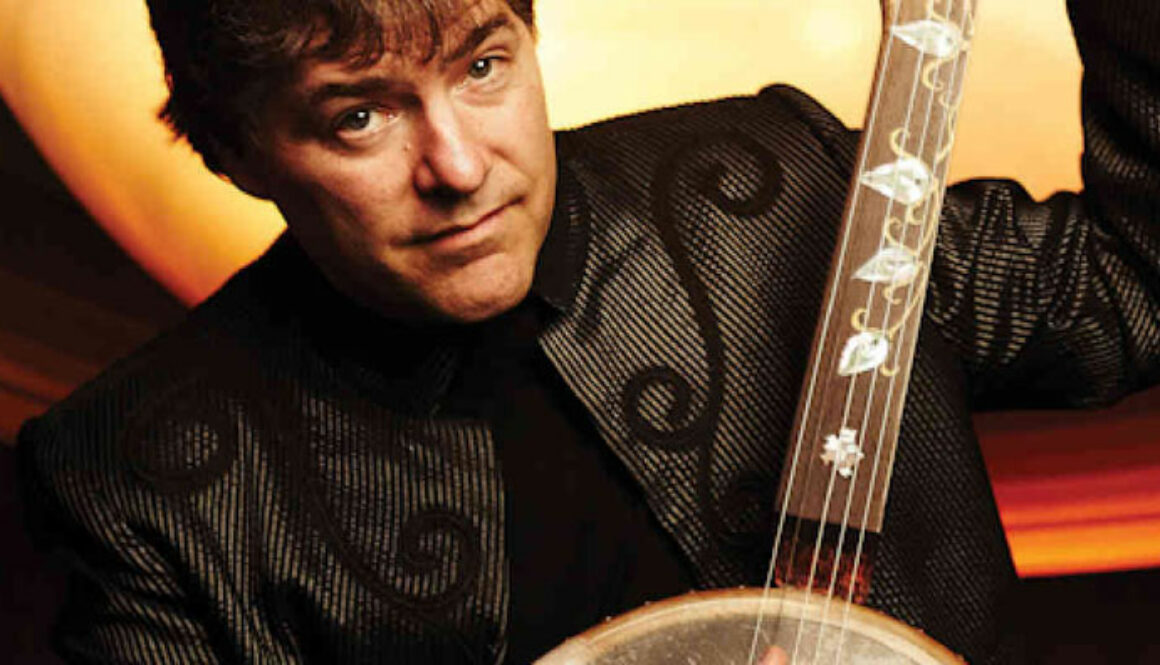Béla Fleck – Perpetual Motion

There are relatively few true “giants” among players of the 5-string banjo in the 3-finger fashion. Most notably, Earl Scruggs stands out as the one player who has done more than anyone else to shape a style of playing and so popularize it that his name is practically synonymous with the instrument. And there are a few other greats – Bill Keith, Ralph Stanley and Doug Dillard come immediately to my mind. The other name I feel belongs in this very elite group is Béla Fleck.
Béla is still a young man, yet I feel he has done more to expand the horizons of this humble instrument than anyone. His playing is rooted in the traditional bluegrass style that many of us learned from the playing of Earl, Bill, Ralph, Doug and a myriad of other proponents. But early in Béla’s development, he studied with an inventive and experimental banjo player named Tony Trischka, and perhaps Tony’s influence spurred Béla into looking for new and unusual ways to branch out from the traditional. His work with The Newgrass Revival demonstrated Béla’s ability to innovate within the loose confines of bluegrass, blended with a rock sensibility.
In recent years Béla has produced his own brand of music that defies classification. He leads a group called the Flecktones, and their music is unique and unusual to say the least. I can only describe it as “5-string banjo meets jazz, funk, hard rock and world music.” Frankly, I am not all that fond of most of the Flecktones’ music, although no one can deny that it is extremely creative and executed with a great deal of skill. But through it all, Béla has kept a hand in the more conventional bluegrass domain, and has produced or appeared on several great albums working with such veteran bluegrass icons as Sam Bush, Tony Rice, Jerry Douglas, Roland White, Stuart Duncan, and many others. He has also teamed up with musicians specializing in other genres, such as Chick Corea, Branford Marsalis, and, very notably, Edgar Meyer.
Which brings us to the principle topic of this review, the Perpetual Motion album. Edgar Meyer is a renowned classical bassist. Béla and Edgar have formed a strong friendship, and at Edgar’s urging, Béla has developed an incredible repertoire of classical pieces arranged for the 5-string. This might sound an unlikely match, although it is worth noting that a great deal of classical music was played on the banjo back in the late 19th and early 20th centuries. There are some practitioners of this craft playing today, but I dare say nothing in my experience prepared me for what I felt the first time I played this album.
Perpetual Motion includes 20 tracks ranging from a delicate rendition of Bach’s “Two-Part Invention No. 13” through a dizzying, bluegrass-driven version of “Moto Perpetuo,” the intricate tune by Paganini from which the title of the album is derived. Most of the cuts are duets or trios; Bela is joined by Chris Thile (mandolin), Evelyn Glennie (marimba), Joshua Bell (violin), Gary Hoffman (cello), John Williams (classical guitar), Edgar Meyer (bass and piano), and James Bryan Sutton (steel-string guitar) in various combinations. Two of the tracks are solo Béla on the banjo.
This is one of the few banjo-centric albums I don’t hesitate to play for people who are not aficionados of bluegrass or old-time mountain music. It is breathtaking, and haunting, and intellectual, and gloriously emotive. You owe it to yourself to give this album a listen. I actually purchased a second copy so that I can keep one in my office at work, and for the last year or so, this has been my most-played CD. Even though I know virtually nothing about classical music, I know a masterpiece when I hear one.
